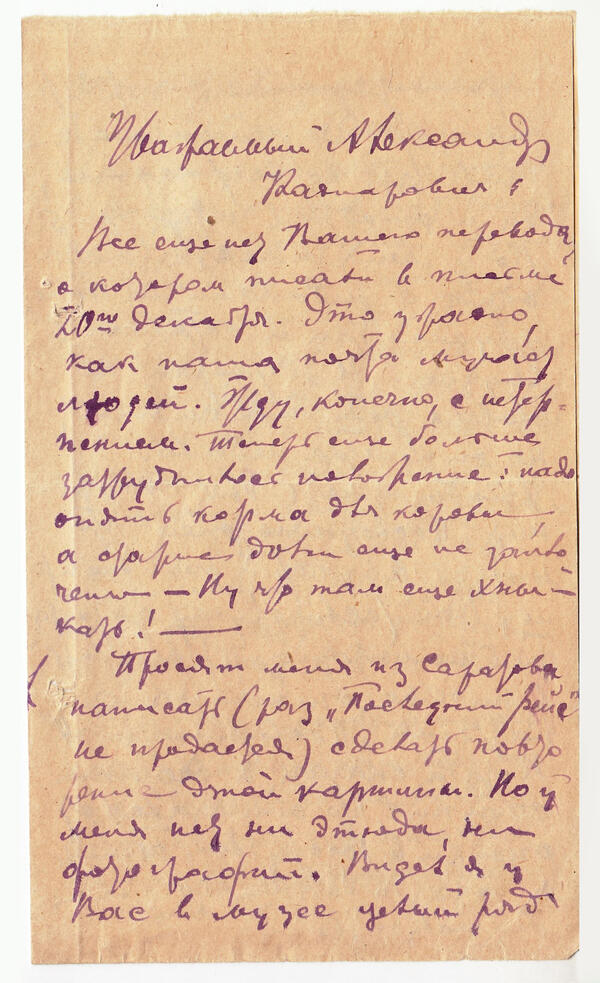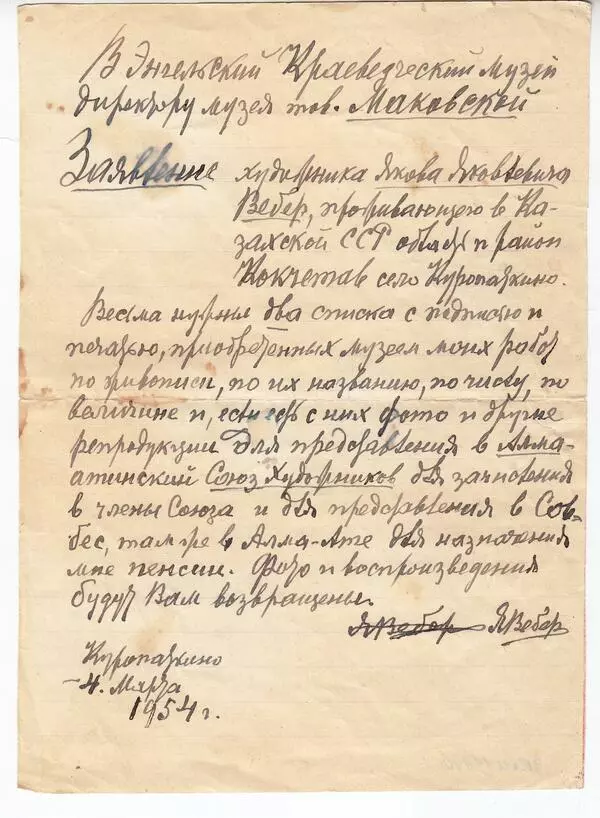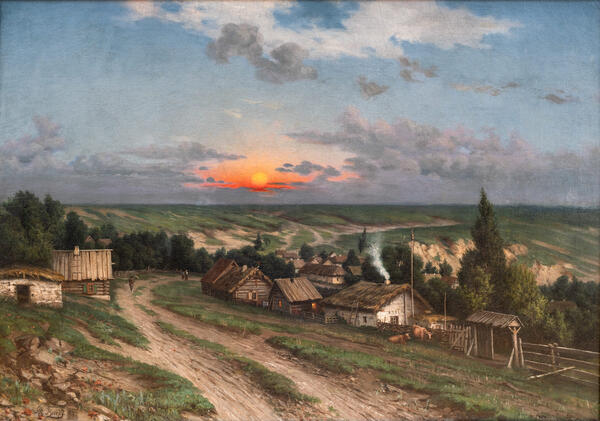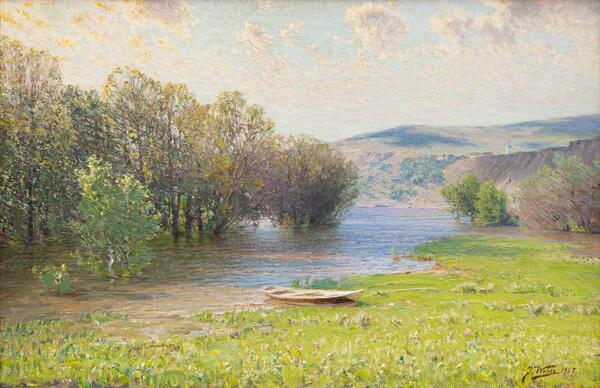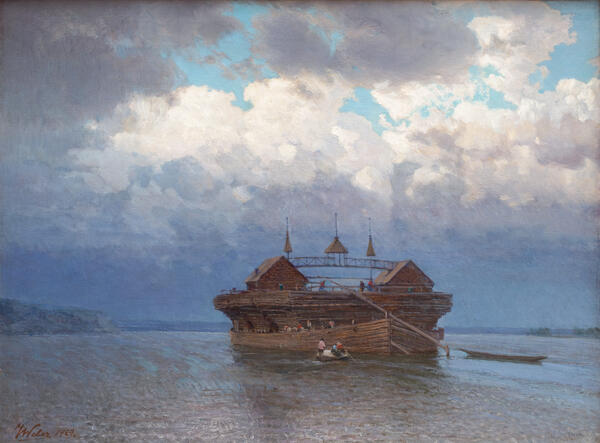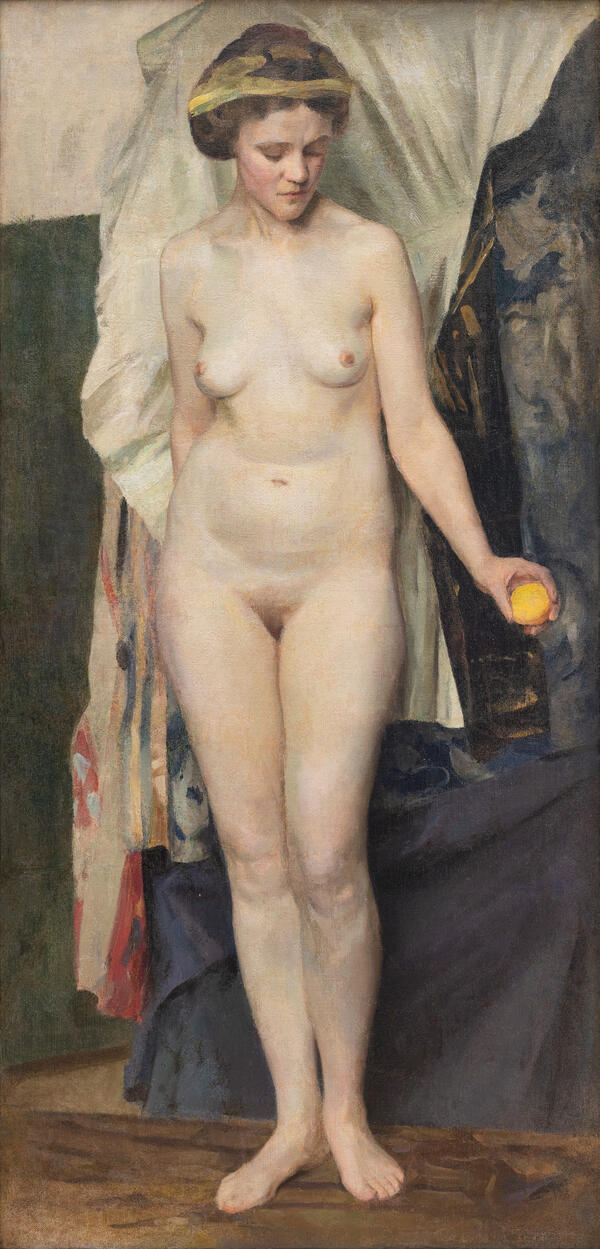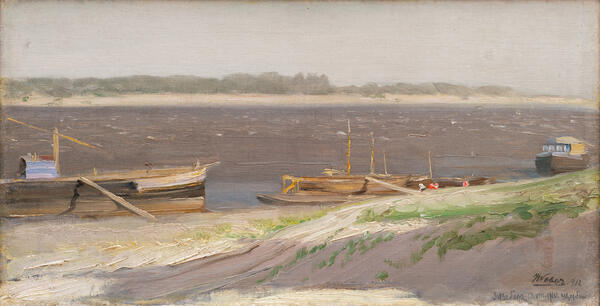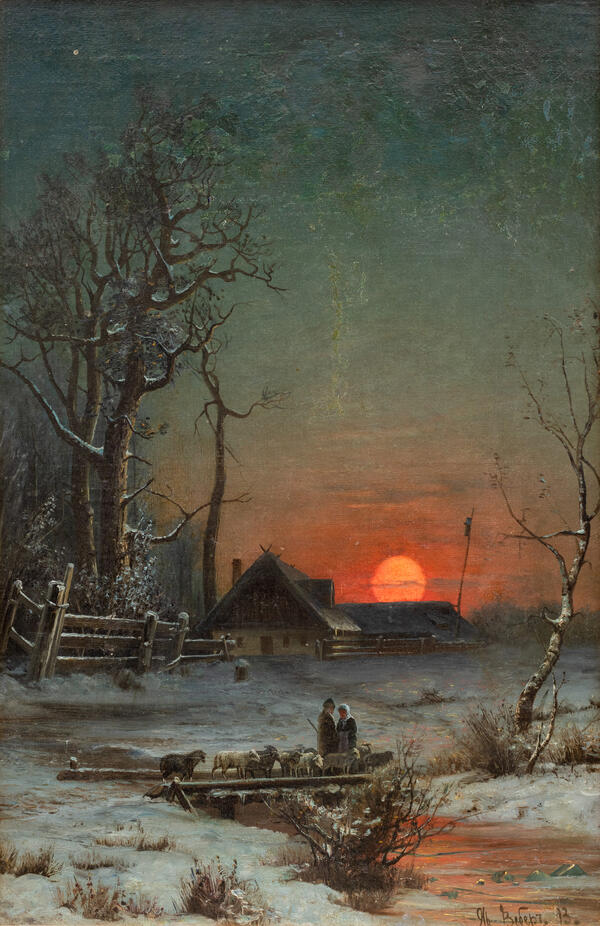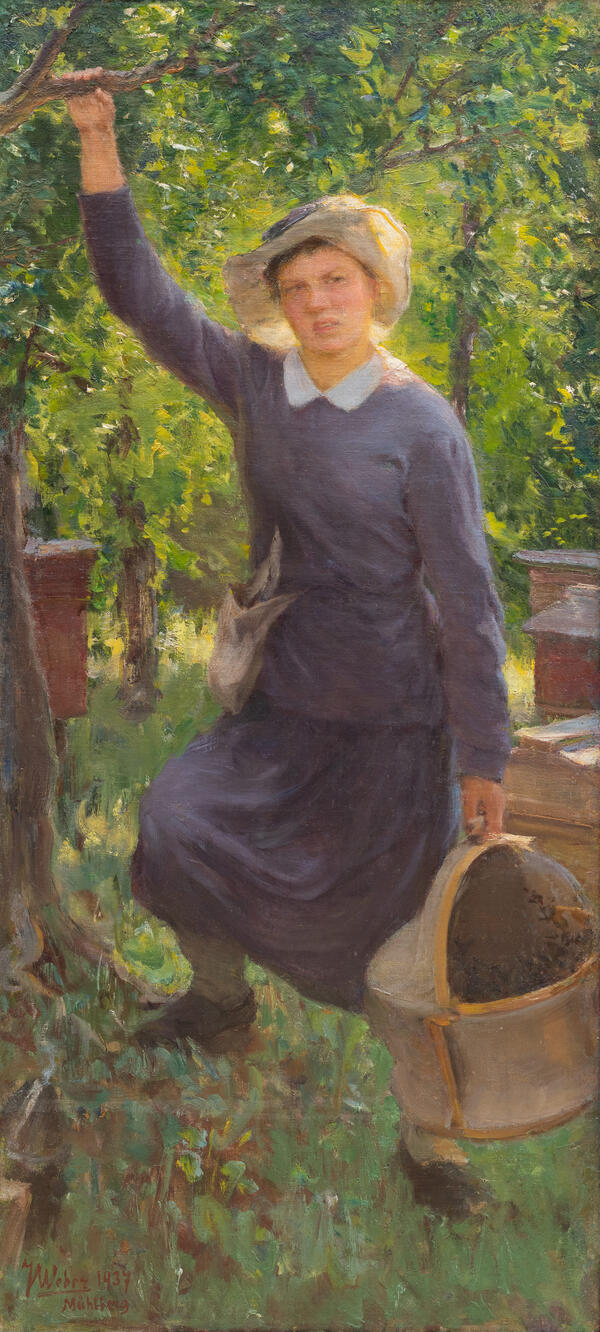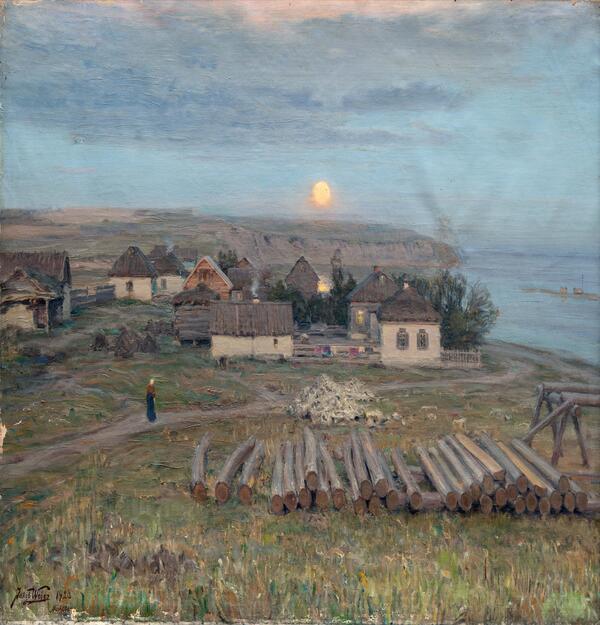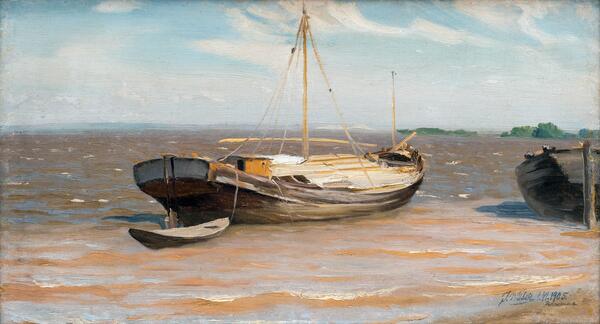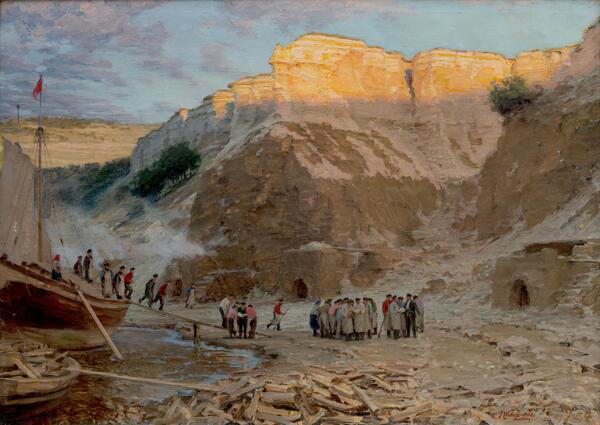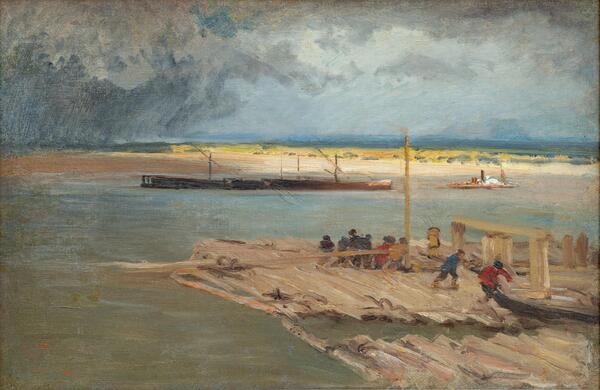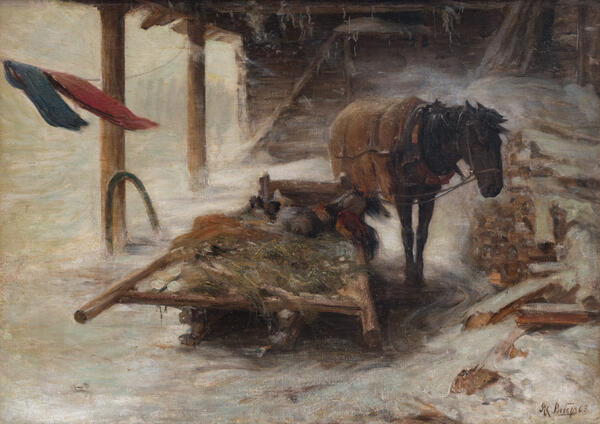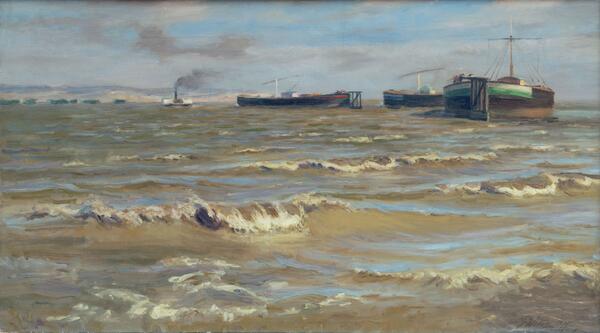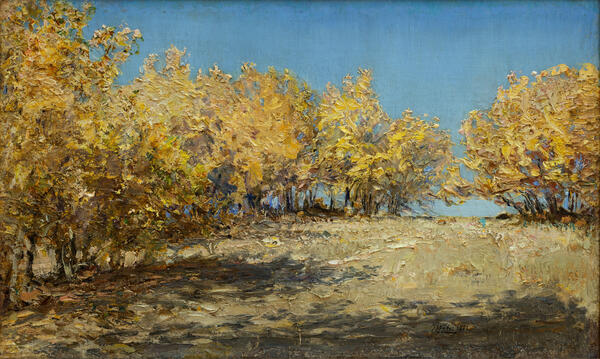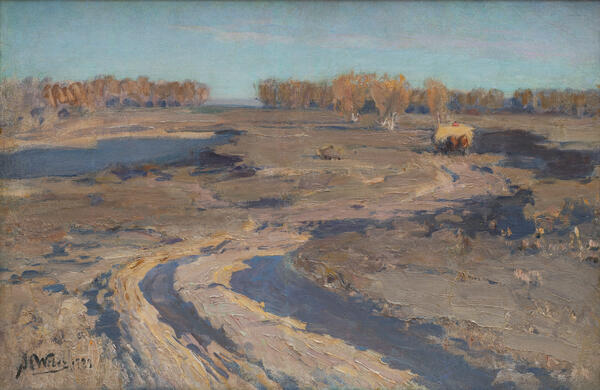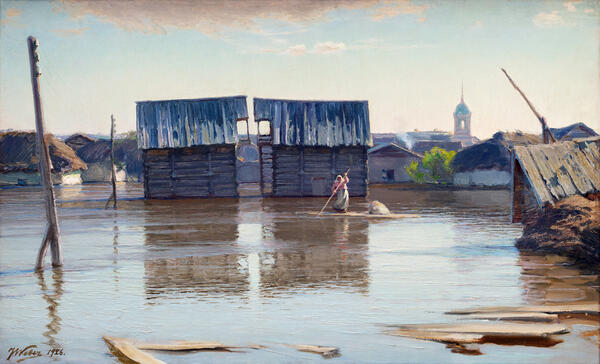Despite the fact that the portrait genre did not feature prominently in the work of Yakov Yakovlevich Weber, yet another facet of his talent was revealed in this area. Not many portraits created by the master in different years have survived. Some of them are in the museums of Penza and Stavropol. One of the best portrait studies was painted in Scherbakovka and is on display at the Engels Museum of Local Lore.
Before 1997, the portrait of a woman was part of the collection of the graphic artist Pavel Ivanovich Zorya. The study is painted in a traditional manner, close to the late Peredvizhniki art. On a dark brown background is a chest-length image of a young girl in white clothing, with long dark hair combed back. The portrait is executed with broad brushstrokes, the white blouse is outlined in a generalized way, featuring the whole color palette; the girl’s face and hair are painted in a complex and beautiful way, with reflexes and highlights. It remains unknown who sat for the artist. Portraiture did not become the main genre for Weber, but the observation skills of the painter, the knowledge of the work of Russian portrait painters, and the cordial encounters with them left their mark on his work. During his studies at the Academy of Arts, Weber enjoyed the opportunity to visit the workshops of Ilya Repin, Arkhip Kuindzhi, Vasily Mate, as well as to observe the work of the brilliant portrait painter Valentin Serov.
From 1898 to 1901, Yakov Weber studied his
profession at the Penza Art School. The environment of this school was
determined by the personality of its head — the famous artist Konstantin
Savitsky. After graduating from the school, Weber was admitted to the Academy
of Arts in St. Petersburg. At the time of completion of his studies in 1909, he
was already an established artist, who had won well-deserved recognition among
his colleagues. However, in 1916, due to the outbreak of World War I and
anti-German sentiments, Weber, together with his family, was forced to leave
Petrograd and urgently, overcoming difficulties, returned to his native land on
the Volga.



